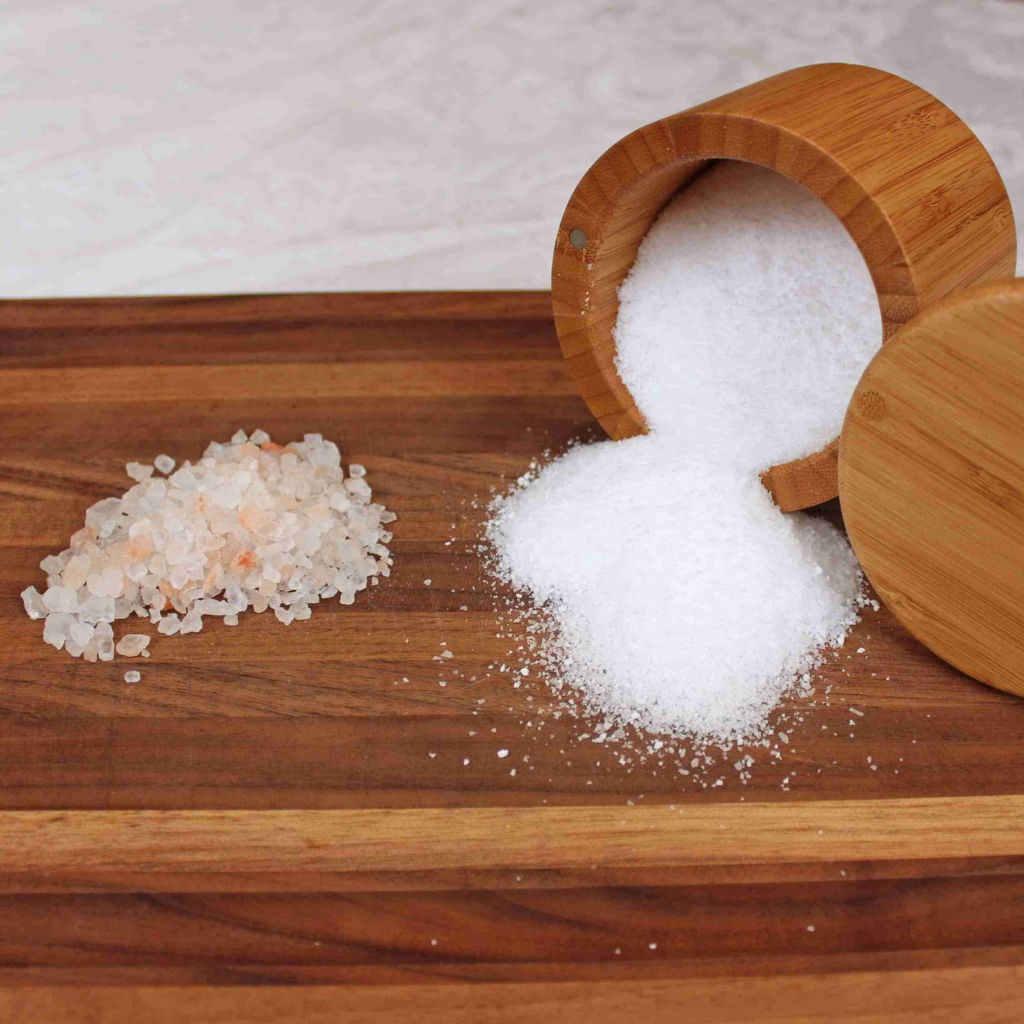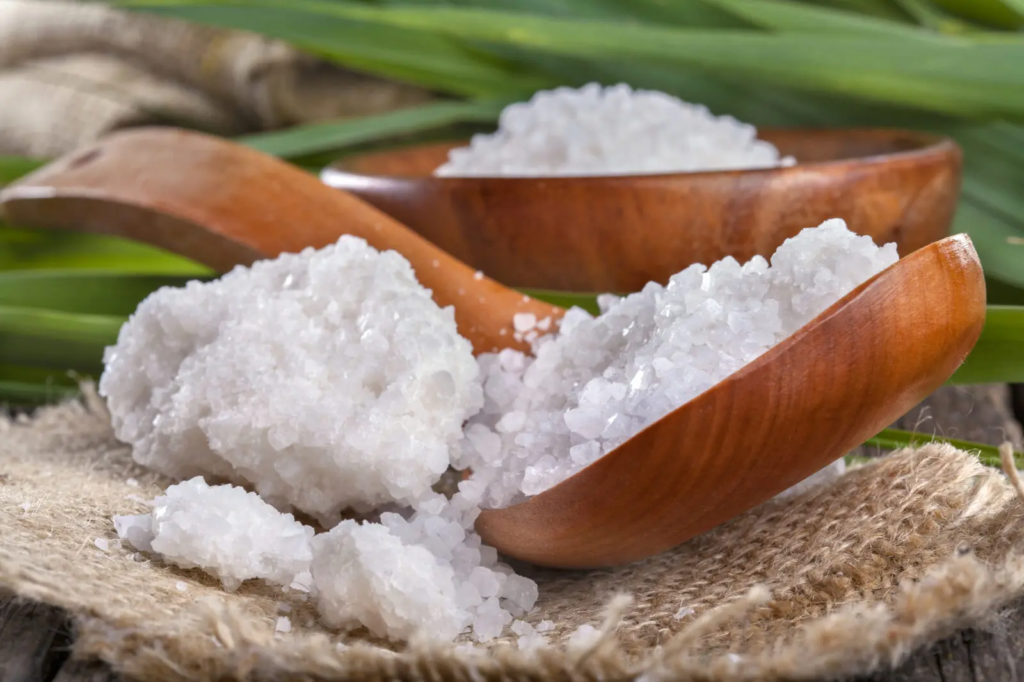Key Takeaways:
- Exfoliates: Gently removes dead skin cells.
- Hydrates: Retains moisture in the skin.
- Detoxifies: Draws out toxins from the pores.
- Soothes: Reduces inflammation and irritation.
- Balances: Helps control oil production and acne.
Celtic salt, also known as gray salt, has been praised for its numerous benefits, not just for culinary purposes but also for skincare. This mineral-rich salt, harvested from the coastal regions of France, is packed with minerals that can significantly improve skin health. Let’s explore how you can incorporate Celtic salt into your skincare routine and what makes it so beneficial.
What is Celtic Sea Salt?
Celtic sea salt is harvested from the coastal waters of Brittany, France. Unlike table salt, which is heavily processed, Celtic sea salt retains its natural minerals, including magnesium, calcium, and potassium. These minerals are essential for various bodily functions and offer numerous benefits for the skin.
Benefits of Celtic Sea Salt for Skin

Natural Exfoliation
Celtic salt‘s coarse texture makes it an excellent natural exfoliant. It gently scrubs away dead skin cells, revealing smoother, more radiant skin. Regular exfoliation with Celtic sea salt can help prevent clogged pores and promote a healthier complexion.
Hydration Booster
The minerals in Celtic sea salt help the skin retain moisture. When used in facial mists or baths, it provides a hydrating boost, leaving the skin feeling soft and supple.
This is particularly beneficial for dry skin, helping to maintain a healthy moisture balance. The high mineral content in Celtic salt is key to how it improves skin hydration, as it helps the skin retain moisture effectively.
Detoxification
Soaking in a bath with Celtic sea salt can aid in drawing out toxins and impurities from the pores. Its detoxifying properties help to cleanse the skin deeply, leaving it feeling refreshed and revitalized.
This can be a great way to unwind and give your skin a thorough cleanse. What makes Celtic salt beneficial for skin health includes its ability to detoxify and purify the skin.
Soothing Skin Irritations
Celtic salt, known for its natural healing properties, possesses a mineral content that can soothe skin irritations and inflammations, including eczema and psoriasis.
Taking a salt bath with Celtic salt can reduce redness, calm the skin, and provide relief from discomfort. So, can Celtic salt help with skin conditions like eczema or psoriasis? Absolutely, its anti-inflammatory benefits make it an effective remedy for such conditions.
Balancing Oil Production
For those with oily or acne-prone skin, Celtic sea salt can help balance oil production. Its minerals help regulate the skin’s oil levels, reducing the occurrence of breakouts.
This makes it an excellent ingredient for maintaining clear and healthy skin. Celtic salt benefits for acne-prone skin include its ability to balance oils and reduce inflammation.
How to Use Celtic Sea Salt in Skincare

Salt Baths
Adding Celtic sea salt to your bathwater can create a detoxifying and relaxing experience. Simply dissolve a generous amount of salt in warm water and soak for about 20 minutes.
This can help relax muscles, reduce inflammation, and cleanse the skin. Knowing how to make a Celtic salt bath for skin detox is simple and effective.
Exfoliating Scrubs
You can make a simple exfoliating scrub by mixing Celtic sea salt with a carrier oil like coconut or olive oil. Gently massage the mixture onto your skin in circular motions, then rinse off with warm water.
This will leave your skin feeling smooth and refreshed. DIY Celtic salt scrub for glowing skin is an easy and natural way to enhance your skincare routine.
Facial Mists
For a hydrating facial mist, dissolve a small amount of Celtic sea salt in distilled water and transfer it to a spray bottle. Spritz your face lightly throughout the day to keep your skin hydrated and refreshed.
Cleansers
Incorporating Celtic sea salt into your cleansing routine can enhance its purifying benefits. Mix a pinch of salt with your regular cleanser or use it as a part of a homemade facial mask to deeply cleanse your pores.
Potential Side Effects and Precautions
While Celtic sea salt is beneficial, it’s important to use it carefully. Over-exfoliation or high concentrations in facial applications can irritate sensitive skin.
Always patch test new treatments and consult with a dermatologist if you have specific skin concerns. Excessive salt intake can lead to dehydration and high blood pressure, so moderation is key. Can you take too much Celtic salt? Yes, and it can lead to adverse health effects.
Expert Opinions and Scientific Insights
Nutritionists and dermatologists often highlight the benefits of Celtic sea salt due to its rich mineral content. Studies have shown that these minerals play a vital role in skin health by promoting hydration and reducing inflammation.
Mineral content of Celtic salt includes magnesium, calcium, potassium, and more, which are crucial for maintaining healthy skin.
FAQs
What minerals are in Celtic sea salt?
Celtic sea salt is rich in various minerals. It primarily contains sodium chloride (about 85.37%) and also includes magnesium, calcium, potassium, iron, zinc, copper, and trace amounts of iodine, manganese, and phosphorus. These minerals are present in small amounts and contribute to its unique flavor and potential health benefits.
What is Celtic salt good for?
Celtic salt is known for its health benefits due to its mineral content. It helps maintain electrolyte balance, supports digestive health, and can enhance immune defenses. The minerals like magnesium and potassium present in Celtic salt contribute to muscle function, nerve function, and maintaining healthy blood pressure levels. It is also used as a finishing salt to add a burst of flavor to dishes.
How often should you use Celtic salt in your skincare routine?
Celtic salt can be beneficial for skin care when used in moderation. It is often recommended to use it as an exfoliant or in salt baths to heal skin damage and reduce inflammation. For a skincare routine, using Celtic salt about once or twice a week is generally sufficient to avoid over-exfoliating the skin, which can cause irritation.
Conclusion
Incorporating Celtic sea salt into your skincare routine can offer numerous benefits, from exfoliation and hydration to detoxification and soothing skin irritations.
By understanding how to use this natural ingredient effectively, you can enhance the health and appearance of your skin. Always remember to use it in moderation and consult with a skincare professional if needed.

Jean Smith is a fitness enthusiast and blogger who focuses on fitness and a healthy lifestyle. She is passionate about assisting people in living healthier lifestyles and is constantly on the lookout for new and creative methods to stay fit and healthy. Her articles are excellent resources for anyone interested in improving their health and fitness.
